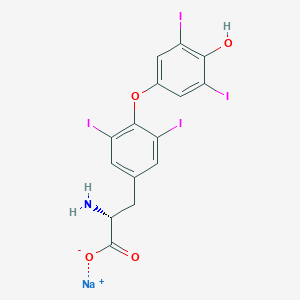The Hong Kong University of Science and Technology has cracked the carcinogenic mechanism of E. coli
-
Last Update: 2021-02-28
-
Source: Internet
-
Author: User
Search more information of high quality chemicals, good prices and reliable suppliers, visit
www.echemi.com
Xin
Sept. 17 (Xinhua Zhang Yashi)
University of Science and Technology announced on the 17th, the university's research team cracked the human body E. coli release of "E. coli-645" lead to colorectal cancer mechanism, help promote the prevention of colorectal cancer research.
While E. coli in the human gut can help digest food and regulate the immune system, E. coli is a genotoxic compound that destroys the double helix structure of DNA in ebony cells and increases the risk of colorectal cancer, according to researchers at the University of Science and Technology. Because of its low concentration, unstable state, and complex pathways for biosynthetic reactions, scientists have struggled to replicate it and find out how it damages DNA.
The research team, led by Qian Peiyuan, a professor in the Department of Marine Science and the Department of Life Sciences at the University of Science and Technology, successfully replicated E. coli gene clusters using new biosynthetic methods and found a large number of methods for cultivating related genes for testing and verification. After repeated testing, the team finally determined that E. coli-645 was the cause of damage to the double helix structure of DNA, and the mechanism by which it was found to damage the double helix structure of DNA.
Qian Peiyuan said the university's research confirmed that E. coli-645 directly destroys the double helix structure of DNA, further explaining the health effects of E. coli, complementing a long-missing puzzle.
researchers say recombining the molecular skeleton of E. coli can provide a design and synthesis basis for powerful DNA decomposition reagents, such as cancer chemotherapy drugs.
the study, conducted in collaboration with
University of California, Berkeley, and the Scripps Institute of Oceans at the University of California, San Diego, was published in the international scientific journal Nature Chemistry.
This article is an English version of an article which is originally in the Chinese language on echemi.com and is provided for information purposes only.
This website makes no representation or warranty of any kind, either expressed or implied, as to the accuracy, completeness ownership or reliability of
the article or any translations thereof. If you have any concerns or complaints relating to the article, please send an email, providing a detailed
description of the concern or complaint, to
service@echemi.com. A staff member will contact you within 5 working days. Once verified, infringing content
will be removed immediately.







